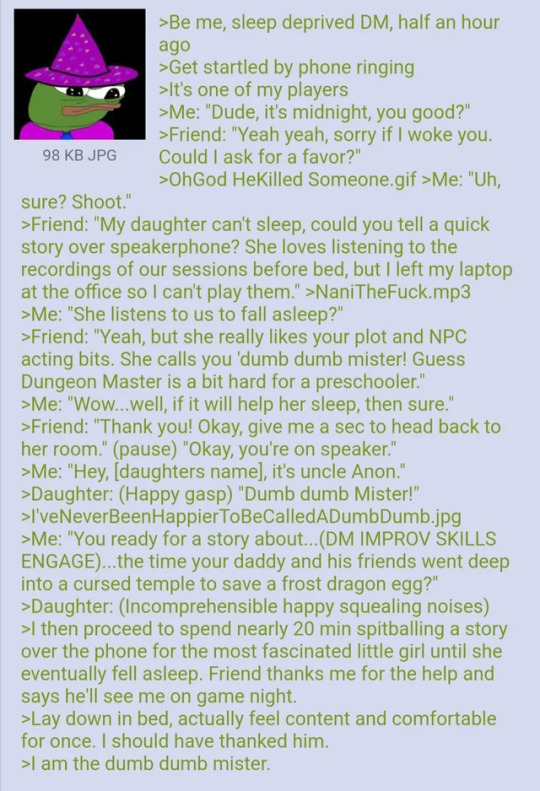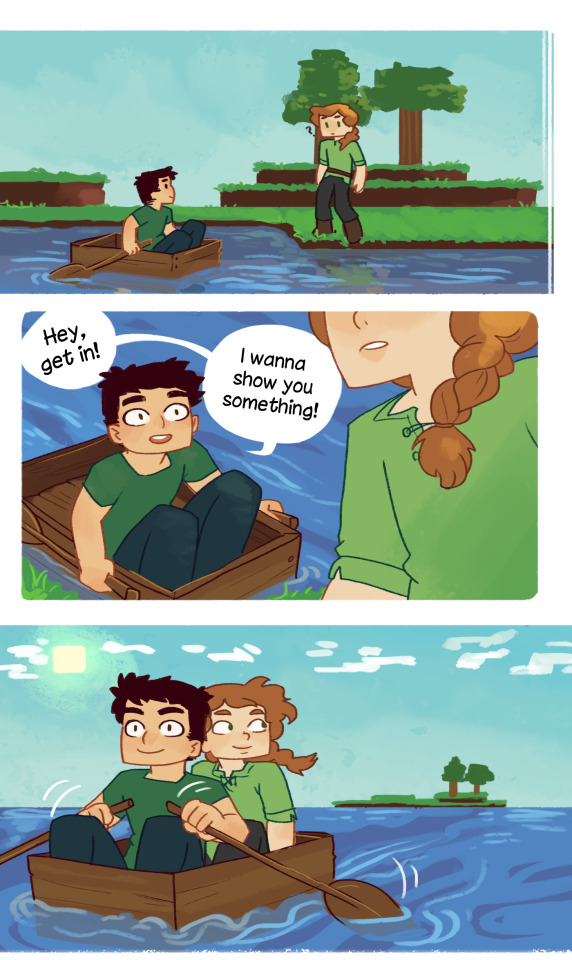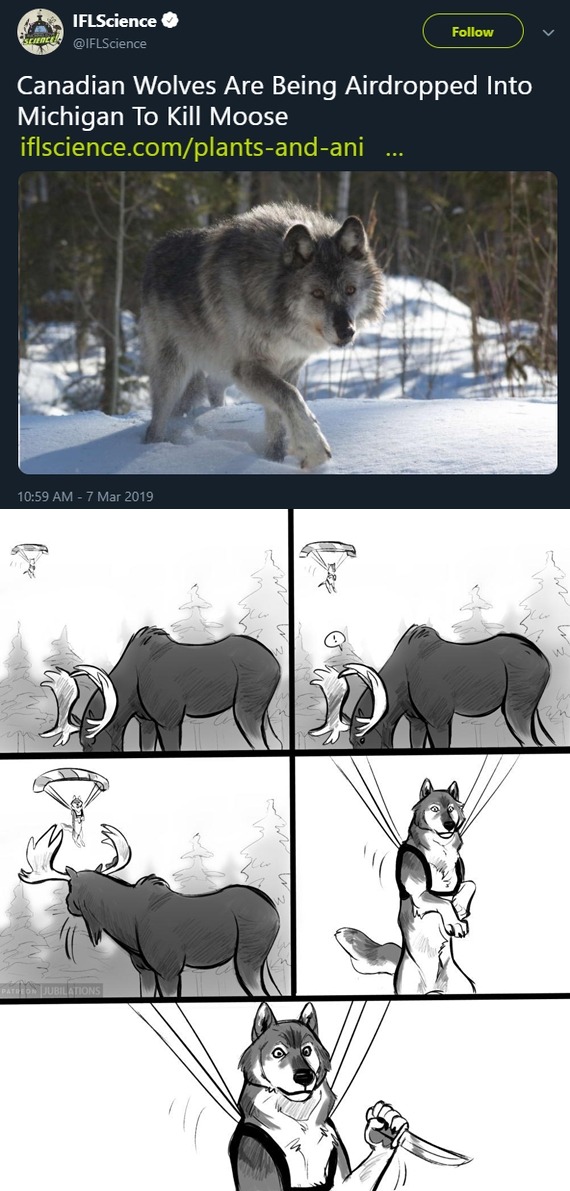Thirtysome-year-old cishet white male geek. Catholic. I love candlelight dinners and long walks on the—wait, shit, wrong website. (In case it wasn't obvious, I think I'm very funny.) I post a lot of Star Wars stuff and BioWare stuff among assorted other fandoms, and of course things I generally consider to be awesome or funny. And I tag everything.
Last active 2 hours ago
Don't wanna be here? Send us removal request.
Text

50K notes
·
View notes
Text
the new dj crazytimes song … now that’s what I call music!
162K notes
·
View notes
Text
How come semi trucks in Europe look like “toot toot :)” and in North America they look like “HONK HOOOOOOOONK >:|”
244K notes
·
View notes
Text
The Turkey Story
So it’s 2001, and my family drives from fucking California and like three blizzards to get to Ohio for thanksgiving, becuase my grandparents are moving into a nursing home and it’s their last holiday in that house. So its a bit bittersweet but ultimately a good thing.
Since it’s their last holiday there, the family pulls out all the stops when it comes to dinner, all the Russian desserts come out, as does the Lethal Bacon Mashed Potatoes and the horrible candied yams with the mini marshmallows dish because not all expressions of love are good, even if they are sincere. In the spirit of going all-out, Uncle Bobby smokes a Turkey.
Uncle Bobby started cooking as a boy scout by tossing foil-wrapped potatoes into a campfire and has been addicted since, and now has a hand-made smokehouse in the backyard where he makes various cured meats and other delights. He seasons the turkey in the traditional manner, but he and grandpa have a shared passion for a spicier mesquite-style bird, so Bobby makes a Cornish Game Hen seasoned that way, for them.
Then Bobby has a Brilliant Idea. He realizes that he can stuff the turkey (once it has been smoked) with regular stuffing, and there is still plenty of room for him to put the game hen inside THAT, and stuff the game hen becuase why not? He confers with Mom, and she explains how to cut open the turkey so there’s dramatic reveal as the stuffing and game hen come out. It’s Genius.
Except, of course, that my Aunt Sue is attending, Uncle Cliff slouching after her.
So the day of the dinner, tensions are running a bit high, between the marathon cooking, the kids all being trapped indoors due to aforementioned blizzards, and Uncle Cliff deciding that the best way to amuse himself is by hiding from the adults in the basement, getting drunk and rambling about how various ethic groups were destroying America. Being that I had close Muslim friends that were leaving the country becuase of 9/11, I was near tears from this nonsense and ready to fight a man roughly five times my size.
Sue, for some reason, keeps coming down and defending him, or telling us we’re rotten children for ‘attacking’ him, becuase she Must Stand By Her Man, even if her man is a hefty bag of dog feces with an ugly mustache.
My sister eventually bolts upstairs to tattle and my grandfather limps down to the basement and brandishes his Hip-Bone Cane, hands rock-steady in spite of the Parkinson’s slowly taking over him.
“Firstly Cliff, It may not be my roof much longer but while you are under it you will be civil, or I’ll beat your skull in. Also, dinner’s ready, everyone go wash up.”
We go upstairs and sit down, and do the traditional “Name one thing you’re thankful for” as the bread gets passed around the table, and things calm down a bit. Bobby brings out the Turkey and everyone goes OOH becuase it’s really pretty, them Mom carves it open so that the stuffing spills out dramatically along with the game hen and there’s an appreciative gasp all around becuase it looks cool.
Only Sue KEEPS gasping, in utter horror, before getting up and clasping her hands to her face ala Edvard Munch and shrieks-
“OH MY GOD IT WAS PREGNANT!”
We all stare at Sue. We all look back at the fully-dressed-cooked-and-stuffed birds that in no way had any internal organs in them or ever gave live birth. Then we all looked back at Sue, trying to figure out where to begin but since she’d been trying to justify Cliff’s behavior she was pretty much free-associating conspiracies and scandals now, and just kept going.
“IT WAS PREGNANT MY GOD WE’VE COMMITTED AN ABORTION WE’RE ALL GOING TO HELL FOR THIS, I’M SO SORRY JESUS-” She goes into full pearl-clutching gibbering horror at this point and falls back into her chair like it’s a Victorian fainting couch only it’s a shitty chair from the Eisenhower administration so it collapses and she slams into the floor, sobbing and kicking her feet like a toddler.
Everyone watched for a moment before my Mom sighs heavily and starts carving and serving the turkey while my grandmother mouths “she’s not coming back”.
Cliff, reactions delayed by about six beers, finally notices his wife is on the floor and tries to pick her up, falls on his ass himself. They are assisted by Dad, who is saintly patient man and less immune to this jacknapery at that point. I am stuffing dinner rolls into my face to keep from laughing at this grand spectacle and it’s not working.
“I CAN’T EAT IT, I REFUSE TO PARTAKE IN THIS BARBARISM-” Sue begins but Dad puts on his best Kindly Father voice (he was heavily involved with the catholic church and even considered becoming a priest before getting drafted but that’s another story) and assures Sue that she need not eat, or even be in the room if she wants. She nods, placated by being the center of attention again, and Dad goes in for the kill.
“I wouldn’t want you to go hungry. Can I make you some Eggs?”
“That would be lovely.” Said Sue, joke flying over her head like a boeing 747. I recall watching my grandmother nearly choke to death on the green beans over that, and everyone pointedly trying to avoid talking about anything poultry-related while Sue sat there and ate the most ironic scrambled eggs in the history of mankind.
Shortly thereafter, Cliff threw up in the sink and they went home, and the party got underway properly, with Grandpa raising a toast to Mom and Uncle Bobby “For marrying well, for a change” “Pregnant Turkey” has been an Ohioan thanksgiving staple since then. I’ll see if I can hit Uncle Bobby up for instructions but if you decide to make it 1. you HAVE to shriek “OH MY GOD IT WAS PREGNANT” when you carve it open, or it’s not authentic and won’t taste as good 2. Share the pictures with me.
If you enjoyed this story, help support your local disabled storyteller by donating to my Tip Jar
74K notes
·
View notes
Text










original by clairetablizo
51K notes
·
View notes
Text
do genuinely find it fascinating how indeed.com is like the biggest job-hunting website out there and yet manages to be profoundly useless in every possible way
51K notes
·
View notes
Text

24K notes
·
View notes
Text
The reading comprehension and overall common sense on this website is piss poor.
1M notes
·
View notes
Text
finished reading the golden enclaves and idk if this is a hot take but i feel like it had better exploration of the importance of communal unity and the necessity of societal change than like 99% of books that people like to classify as hopepunk these days simply for not just being like "working together is so good, i love community, together we can accomplish so much and change the world for the better <3" and was instead like "yeah, this work is going to be really fucking hard. it's going to suck, and it's going to be unpleasant, and people are going to hate you for doing it. and maybe you'll feel like giving up because it feels like too much, and being complacent and just going along with the status quo would be easiest. but you still need to do it, because it's what needs to be done, and eventually the world will be better for it."
508 notes
·
View notes
Text
Guy freezes his hair and it stands tall.
44K notes
·
View notes
Photo


my brother is a little shit in minecraft
302K notes
·
View notes
Photo

432K notes
·
View notes
Text
i bet belle and hua mulan would love each other. the filial piety brothers 💪
12K notes
·
View notes
Text

idk man I think according to color theory this is actually an excellent design for the carpet
7K notes
·
View notes
Text
Mass Effect au where instead of the Starchild, Shepard finally gets indoctrinated by the Reapers at the very end and you have to play as the squadmate with highest relationship points or their LI to stop them.
If your ems is high enough, you can break through the indoctrination and bring Shepard back to stop the cycle.
If your ems is too low, you have to stop Shepard.
Permanently.
And it falls to you to activate the Crucible.
14K notes
·
View notes

